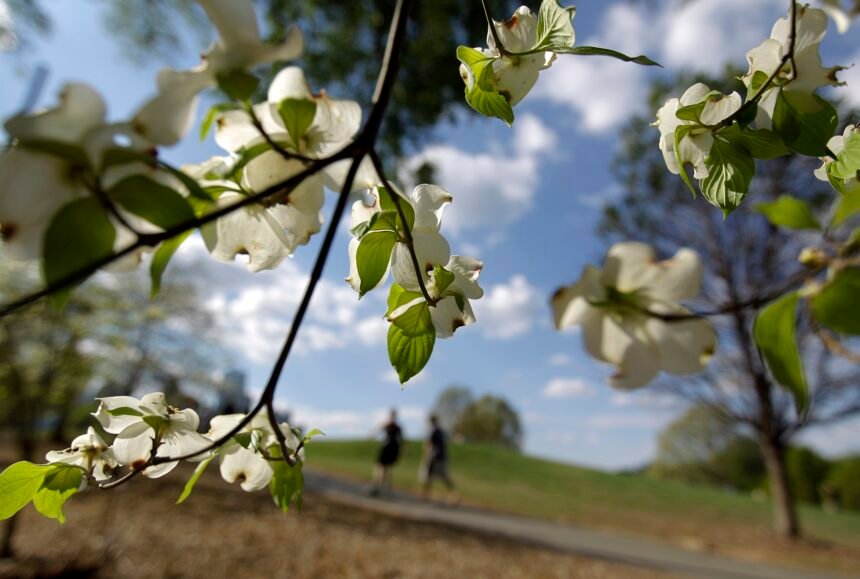The City of Atlanta, at long last, has passed a new tree protection ordinance.
The document hasn’t had a major update in decades, but Atlanta’s city council voted unanimously on June 16 to spruce up the tree protection ordinance.
Atlanta’s reputation as the City in a Forest faces a major threat from development: According to a study by Georgia Tech, Atlanta’s canopy has shrunk 1.5% from 2008 to 2018. While that may sound small, it’s about half an acre of canopy per day during that decade.
To stem the loss, Atlanta’s City Council has approved several measures that are set to take effect on January 1, 2026.
One of the major updates is a change in what’s called recompense, the amount of money a person or business has to pay in lieu of cutting down a tree. The city council changed the amount from $130 to $140 per diameter inch of tree trunk, meaning the bigger the tree cut down, the more money it costs. The money goes toward buying and planting another three somewhere else.
Beginning January 1, 2027, and continuing each year, the established recompense will be adjusted to reflect the annual rate of inflation based on data from the U.S. Bureau of Labor Statistics for the Atlanta-Sandy Springs-Roswell, GA Metropolitan Statistical Area (MSA).
In addition to changing the recompense amount, City Council also approved:
- Doubling the fine for illegal tree removals
- Increasing the City’s Tree Trust Fund to $400,000, a pot of money used to assist low-income seniors in removing hazardous trees on their properties
- Additional funding for arborists in the Department of City Planning and funding for one senior arborist in the Department of Parks and Recreation
- Adding a discount on recompense fees for affordable housing developers
- Incentivizing planting instead of recompense by offering credit at 1.25 times the number of caliper inches planted
Members of the development community say they feel the update shook out pretty fairly.
“I wouldn’t chalk it up as a win for the development community, and I wouldn’t chalk it up as a loss for the development community,” said Garrett Wylie, vice president of government affairs for the Greater Atlanta Home Builders.
But tree advocates say there’s still a lot of work to be done to protect trees and stem the loss of Atlanta’s tree canopy. Greg Levine, executive director at Trees Atlanta, spoke in public comments at the city council meeting and said the new ordinance didn’t go far enough.
“I don’t want to sound like a broken record — but I will say this — trees really are important for the health of the people that live here,” Levine said. “And as much as this ordinance, these drafts, have had some improvement in them, they’re still just not doing enough.”
He said there are still discounts and opportunities to not pay full recompense or other fees, and ultimately, the ordinance still leaves the urban canopy at risk of continuing to shrink.
And some council members agreed. Liliana Bakhtiari, who represents District 5, said she isn’t considering this vote the end of her work on the tree ordinance.
“I’m dealing with clear cutting in my community — I need some way to push back on it. This is a start, but to my colleagues and to everyone listening, I’m not done,” Bakhtiari said.
Council member Antonio Lewis from District 12 also said the tree ordinance wasn’t a slam dunk, and left something to be desired for tree advocates. But — he said the end of the stalemate on the tree ordinance was a necessary move by the city council.
“What I’ve learned as a council person — being here, is that you can’t you can’t kill it because you didn’t get everything you wanted, because it can’t just be my idea,” Lewis said.
For now, despite imperfections, the ordinance received a 15-to-0 vote in favor, which is headed to the mayor’s desk for approval.











